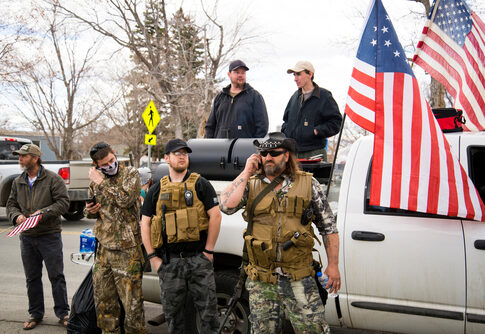Georgia Representative Barry Loudermilk is spearheading a push to overturn the January 6th Committee’s findings.Rep. Loudermilk intends to introduce a resolution invalidating the findings of the January 6th Committee, which is led by Democrats. The Department of Defense’s response to the Capitol riot was reportedly influenced by political concerns and optics. The investigation challenges the official narrative of the events of January 6th.
Loudermilk’s Resolution Challenges Official January 6 Narrative
Georgia Republican Representative Barry Loudermilk is spearheading efforts to challenge the findings of the Democratic-led January 6th Committee. Loudermilk, chairman of the House Administration’s Subcommittee on Oversight, has launched his own investigation into the Capitol riot, claiming to have discovered evidence that contradicts the official narrative.
Loudermilk’s investigation has focused on the Department of Defense’s (DoD) actions on January 6, particularly the deployment of the D.C. National Guard. The Subcommittee’s findings imply that senior DoD officials purposefully delayed the Guard’s deployment, contradicting previous statements to Congress.
DoD Inspector General Report Under Fire
The criticism of the DoD Inspector General’s report on the events of January 6 is an important aspect of Loudermilk’s investigation. The Subcommittee charged that the report was biased, incomplete, and favored senior Pentagon officials while disparaging the D.C. National Guard.
“My Subcommittee worked with the DoD IG in good faith throughout our investigation to provide multiple opportunities for the DOD IG to produce corroborating materials or evidence to support their conclusions” – Chairman Loudermilk
The Subcommittee has demanded a correction to the Department of Defense’s January 6 report, citing numerous factual errors and the omission of key witness testimony. This move emphasizes the contentious nature of the ongoing Capitol riot investigations, as well as political parties’ differing interpretations of what happened.
The former J6 Committee is not above accountability or immune from transparency for promoting false political narratives instead of conducting a genuine investigation.
I will continue to pursue the truth, and hold them and others accountable. @JudicialWatch https://t.co/6sjQTYpDYv
— Rep. Barry Loudermilk (@RepLoudermilk) November 20, 2024
Evidence of Delayed National Guard Deployment
One of the most significant findings of Loudermilk’s investigation is the alleged deliberate delay in deploying the D.C. National Guard to the Capitol on January 6, 2021. The Subcommittee claims to have discovered evidence that political concerns and optics influenced DoD officials’ decision-making, resulting in critical delays as the situation at the Capitol worsened.
“Unfortunately, the DoD IG continues to promote an inaccurate narrative that protects senior Pentagon officials and attempts to cast fault on the D.C. National Guard, who were ready and waiting less than 2 miles from the Capitol but unable to respond on January 6 due to lack of communication from the Secretary of the Army.” – Chairman Loudermilk
The investigation has revealed video footage allegedly showing Secretary of the Army Ryan McCarthy falsely stating to Congress that the National Guard was being deployed, despite the fact that records show the Guard did not leave the Armory until 5 p.m. This discrepancy is central to Loudermilk’s case against the official narrative.
Push for Transparency and Accountability
Loudermilk’s efforts to introduce a resolution in the new Congress that would invalidate the January 6th Committee’s findings are part of a larger push for transparency and accountability in the Capitol riot investigation. The congressman’s actions highlight the continuing partisan divide in interpreting and responding to the events of January 6.
As the debate over the January 6 events continues, Loudermilk’s investigation and proposed resolution are likely to spark further debate and potentially reshape the narrative surrounding one of the most contentious days in recent American history. The outcome of these efforts could have a significant impact on how Americans remember and understand the events of January 6.
Sources:

